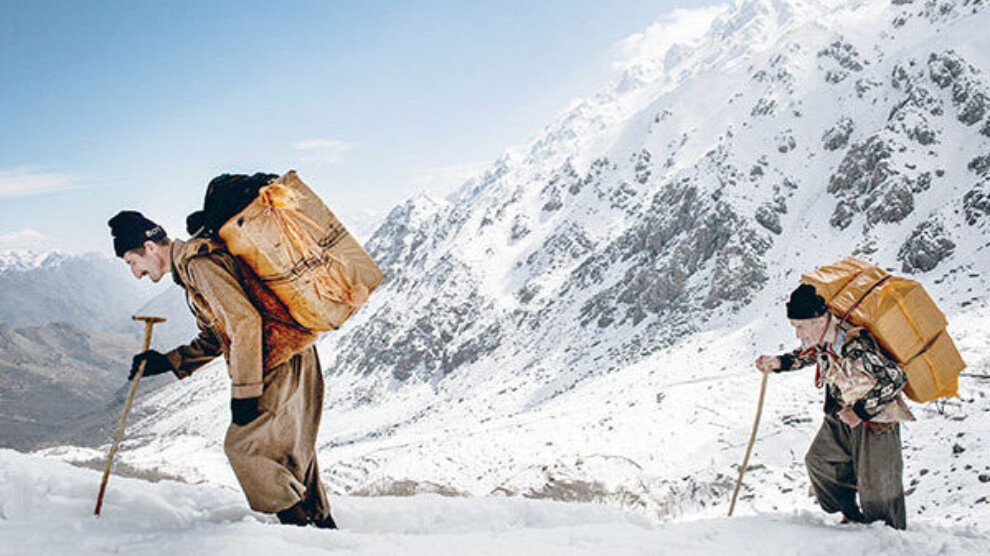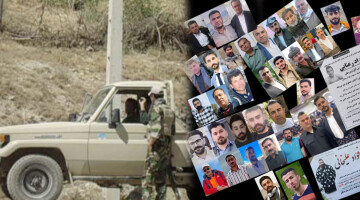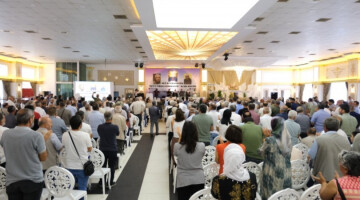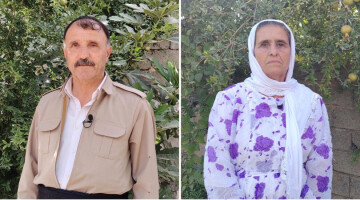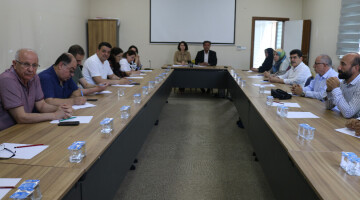Kolbars, load carriers, are murdered almost every day in the border city of Bane in East Kurdistan. The latest victim of the Iranian regime forces' attacks on kolbars was a young karate player named Hiwa Aziz Necat, a member of the Iranian Junior Karate Team and a gold medallist.
A kolbar is a worker who is employed to carry goods on his back across the borders of Iran, Iraq, Syria and Turkey, legally or illegally.
Hiwa Aziz Necat was a kolbar, saving money for his karate training. He was badly injured in the leg following direct fire from the Iranian forces and may not be able to take place in sportive activities anymore.
According to a report by the East Kurdistan Human Rights Organization, at least 8 kolbars were killed in different parts of the border city of Bane in the last two months. Moreover, 23 kolbars were injured as a result of direct fire by Iranian forces, and 3 kolbars were injured by mine explosions on the border.
Bordered by Sulaymaniyah in South Kurdistan, the East Kurdish city of Bane has Pêncwên and Sharbajar districts, as well as some major and minor border regions and points.
Due to the unemployment in Bane and other cities of East Kurdistan, many young people in Bane and other cities such as Seqiz, Serdeşt and Bokan are forced to work as kolbars to support their families.
Targeting and shooting of kolbars are not new phenomena. Attacks leave dozens of kolbars dead, injured or crippled each year.
During a visit to Bane at the end of August, Iranian Border Guard Commander Ehmed Eli Goderzi announced that the border between Hewtaş and Birweşkan would remain closed for two months. Following the announcement, attacks on kolbars have dramatically increased.
Goderzi said in a statement that those who cross the border without the knowledge of the Border Guard forces would face the most violent form of what he called a 'harsh response'.
The 'harsh response' of the Iranian security forces signifies the targeted killings of kolbars who work along the borders of South and East Kurdistan to support their families financially.
Parliamentarians from Bane and Seqiz in the Iranian Parliament do not only remain silent on the issue, but also make statements legitimizing the killings of kolbars.
A Bane and Seqiz parliamentarian Behzad Rahimi told Iran's Tasnimi News Agency in February 2022 that because of the bans, kolbars no longer bring cupboards and televisions to Iran, but weapons and alcohol.
Some activists and human rights organizations criticized similar statements by Kurdish parliamentarians. The Kurdistan Human Rights Association said that the parliamentarian in question spoke on behalf of the Iranian state and the Guard forces. It added that the number of kolbars who were killed or injured as a result of the systematic attacks of the Iranian forces surpassed the number of those who died in the war.
The increase in systematic targeting of kolbars, impunity for the perpetrators and the decision to close the borders caused many deaths in the border region. The crackdown on kolbars puts other kolbars into jeopardy in other border cities of East Kurdistan.
The Iranian regime is encouraged by the insensitivity and indifference of international human rights organizations to target and kill kolbars without hesitation.

